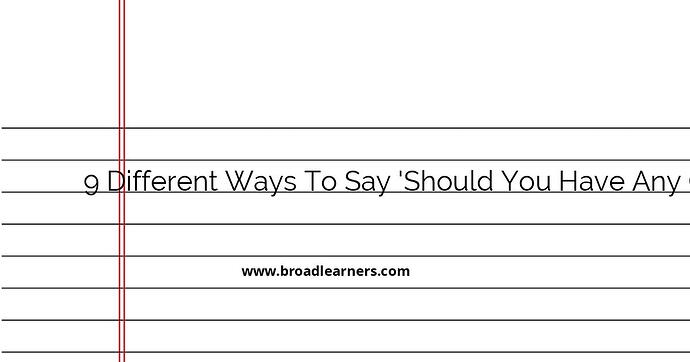When ending a presentation or email, it's common to invite questions from the audience or recipients. The phrase 'Should you have any questions' is polite and formal, but there are several alternatives you can use to convey the same message in different ways. Here are nine different ways to say 'Should you have any questions':
- If you have any queries, feel free to ask
- Please don't hesitate to ask if you have any questions
- Feel free to reach out with any questions you might have
- If anything is unclear, please let me know
- Should you need further clarification, do not hesitate to contact me
- I am here to help with any questions you may have
- Should any queries arise, feel free to ask
- Please feel free to ask if you require any further information
- Should you wish to discuss this further, feel free to reach out
Each of these alternatives maintains a professional and approachable tone, allowing your audience to know that they are welcome to ask questions or seek further clarification. Consider using these variations to add diversity and courtesy to your communication.
1. If You Have Any Queries, Feel Free to Ask
This phrase encourages the audience to seek clarification or ask questions without hesitation. It indicates that you are open to addressing any uncertainties they may have.
For example, in a presentation:
At this point, I have covered the main features of our product. If you have any queries, feel free to ask.
2. Please Don't Hesitate to Ask if You Have Any Questions
Direct and earnest, this alternative urges the audience to seek clarification without reservations. It emphasizes the willingness to provide assistance.
For instance, in an email sign-off:
Thank you for your attention. Please don't hesitate to ask if you have any questions.
Did I miss anything? Respond below
